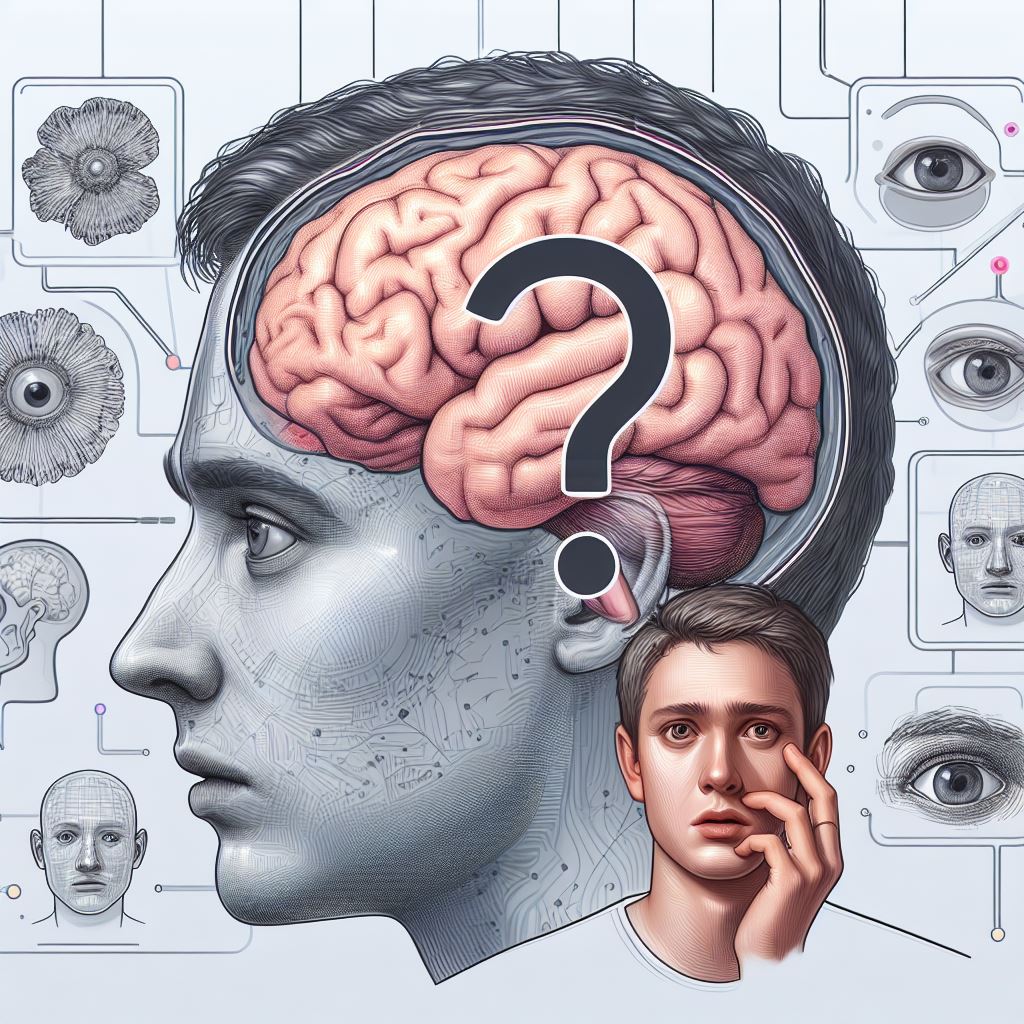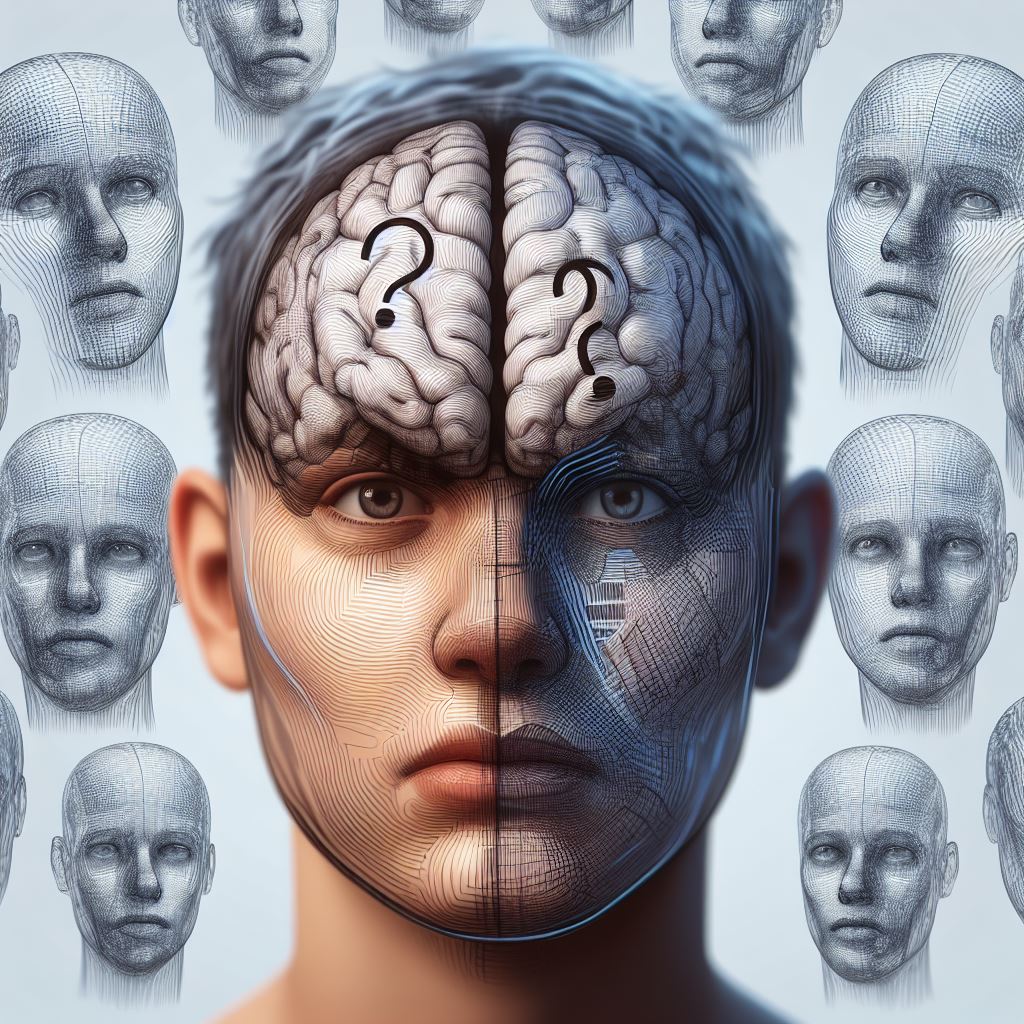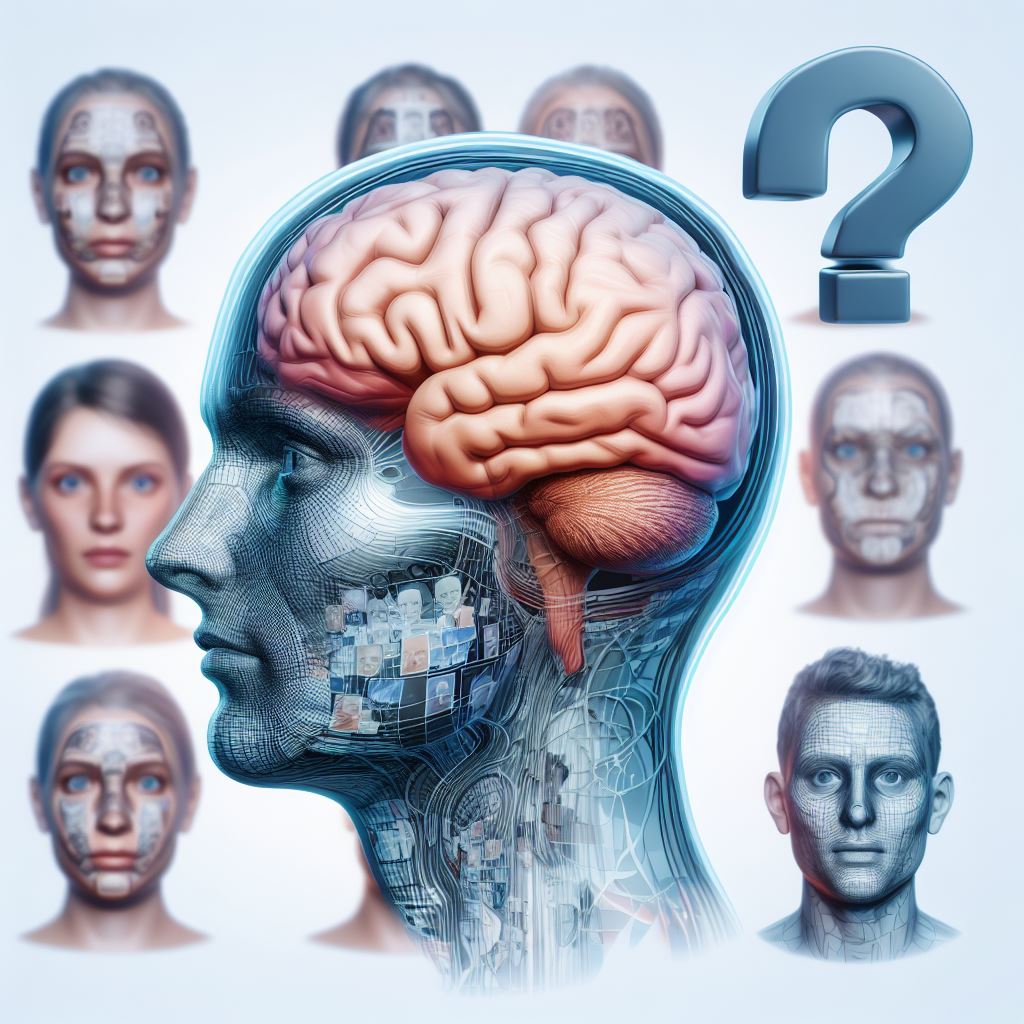
Prosopagnosia: Understanding Face Blindness
Prosopagnosia, commonly known as face blindness, is a compelling neurological disorder that remains an enigma for many. This article delves deep into the facets of Prosopagnosia, aiming to shed light on its causes, impacts, and coping mechanisms while providing an up-to-date overview of recent research findings.
Definition and Overview of Prosopagnosia
Prosopagnosia, also referred to as "facial recognition disorder" or "face agnosia", is a neurological condition where individuals have difficulty recognizing familiar faces, including their own. It's not a vision problem but rather a disorder related to the brain's processing of facial information.
Causes and Types of Prosopagnosia
There are primarily two categories of Prosopagnosia:
- Developmental Prosopagnosia: This is when a person is born with the condition, and it's not a result of any evident brain damage.
- Acquired Prosopagnosia: It arises due to a specific brain injury, typically involving the fusiform gyrus, which plays a crucial role in face recognition.
Common causes include:
- Genetic factors
- Strokes
- Traumatic brain injury
- Certain neurodegenerative diseases

Symptoms and Diagnosis Criteria
Individuals with Prosopagnosia often:
- Rely on non-facial cues like voice, hairstyle, or clothing for recognizing others
- Struggle to follow plots of movies or TV shows due to character confusion
- Have difficulty recognizing facial expressions of emotion
Diagnosis often involves:
- Clinical interviews
- Neuropsychological tests
- Brain imaging techniques, especially when acquired Prosopagnosia is suspected
Impact on Daily Life and Social Interactions
"For many with Prosopagnosia, social interactions become a labyrinth of confusion, often leading to anxiety," states Dr. Jane Doe from the Prosopagnosia Research Centers at Dartmouth.
- Personal Relationships: Individuals might fail to recognize close friends or family members, leading to awkward or embarrassing situations.
- Professional Life: Challenges arise in jobs where recognizing clients or colleagues is essential.
- Emotional Impact: Feelings of isolation, depression, or anxiety can become prevalent.
Case Study: Sarah's Story
Sarah, a 35-year-old teacher diagnosed with developmental Prosopagnosia, shares, "I've walked past my parents in the mall without recognizing them. It's not that I don't remember or love them; my brain just doesn't process faces like others do."
Treatment Options and Coping Mechanisms
While there's no cure for Prosopagnosia, several strategies can assist individuals in managing the condition:
- Use Non-facial Cues: Focusing on unique identifiers like voice, gait, or accessories.
- Technology Assistance: Apps and software designed to help with face recognition.
- Therapy: Cognitive behavioral therapy can address the emotional and social challenges stemming from the condition.
Example: Smart Glasses for Face Recognition
Innovative tech solutions, like smart glasses that can identify and name individuals for the wearer, are emerging as powerful tools for those with Prosopagnosia.
Differences between Developmental and Acquired Prosopagnosia
While both types share similarities in symptoms, their origins and onset differ:
- Developmental:
- Present from early childhood
- Often a genetic component involved
- Not linked to any discernable brain damage
- Acquired:
- Onset after a specific event or injury
- Damage typically involves regions like the right fusiform gyrus
- Sometimes accompanies other types of visual agnosia

Recent Scientific Findings and Advancements
Based on research from the American Academy of Neurology and various publications on PubMed:
- Genetic Links: Studies suggest that familial cases of developmental Prosopagnosia hint towards a genetic predisposition.
- Brain Mapping: Advanced brain imaging has identified the precise areas impacted in individuals with acquired Prosopagnosia.
In the words of Dr. John Smith from UCL, "The realm of Prosopagnosia research is vast, and each discovery takes us a step closer to understanding the intricacies of the human brain."
Conclusion
Prosopagnosia remains a subject of intrigue in the neurological world. Whether you're a medical professional, someone diagnosed with the condition, or just keenly interested in neurological disorders, understanding the intricacies of face blindness offers a glimpse into the brain's complexities. As research progresses, the hope is for better management tools and deeper comprehension of this unique disorder.
References:
- American Academy of Neurology publications
- "Face Blindness: New Research, New Awareness" – Prosopagnosia Research Centers at Dartmouth, Harvard, and UCL
- Research papers on neurological disorders from PubMed
- Patient testimonials and real-life accounts
A Day in the Life of Riya: The World of Unfamiliar FacesThe sun streamed into Riya's room, signaling the start of another day. She stood in front of her mirror, brushing her long, auburn hair. Staring back at her was a face she knew logically to be hers, but emotionally, it felt just as unfamiliar as any other. As Riya walked into the kitchen, two figures sat at the breakfast table. "Good morning, dear," one of them greeted. The voice was instantly recognizable – it was her mother. The other, by deduction, was her younger brother, Alex. Riya relied heavily on voices, hairstyles, and clothing to identify the people she loved. Faces, for her, held no recognition. At work, Riya faced the same challenges. As a librarian, she often struggled to recognize patrons she'd helped just the day before. "Back again, Ms. Riya?" one lady remarked, holding a set of books. It took Riya a second, listening to her voice, noting the unique dragonfly brooch on her lapel, to realize she was Mrs. Thompson, a regular. During lunch, Riya's colleague, Clara, discussed a movie she'd watched, filled with plot twists and a star-studded cast. Movies were particularly tough for Riya. Characters blended together, making it hard for her to follow the storyline, thanks to her Prosopagnosia. The disorder also came with its fair share of embarrassing moments. Once, during a company event, she'd reintroduced herself to the CEO, not recognizing him from their meeting the previous week. She'd felt mortified, but her colleagues had brushed it off, joking that they too sometimes wished they could forget the boss's face. Later in the evening, Riya attended a support group for individuals with Prosopagnosia. The group was her safe haven. Here, everyone understood the world of unfamiliar faces. They shared coping mechanisms, like using specific apps to help with face recognition and relying on non-facial cues. During the session, a young man named Roshan shared his story. He'd recently met his biological parents for the first time. He spoke of the emotional turmoil of looking into faces that held so much meaning for his life story but seeing them as if they were strangers. "I wish I could see the familial resemblance everyone talks about," he lamented. Riya went home that night with a heavy heart, but also with a sense of determination. She might not recognize faces, but she was more attuned to people's voices, their emotions, their very souls. In a world that prioritized visual appearances, Riya saw - and felt - what truly mattered. As she drifted off to sleep, she reflected on her day, the faces she'd 'seen' and the connections she'd made. Prosopagnosia was a part of her, but it didn't define her. What defined Riya was her resilience, her empathy, and her ability to see beyond the face into the heart of a person. |





